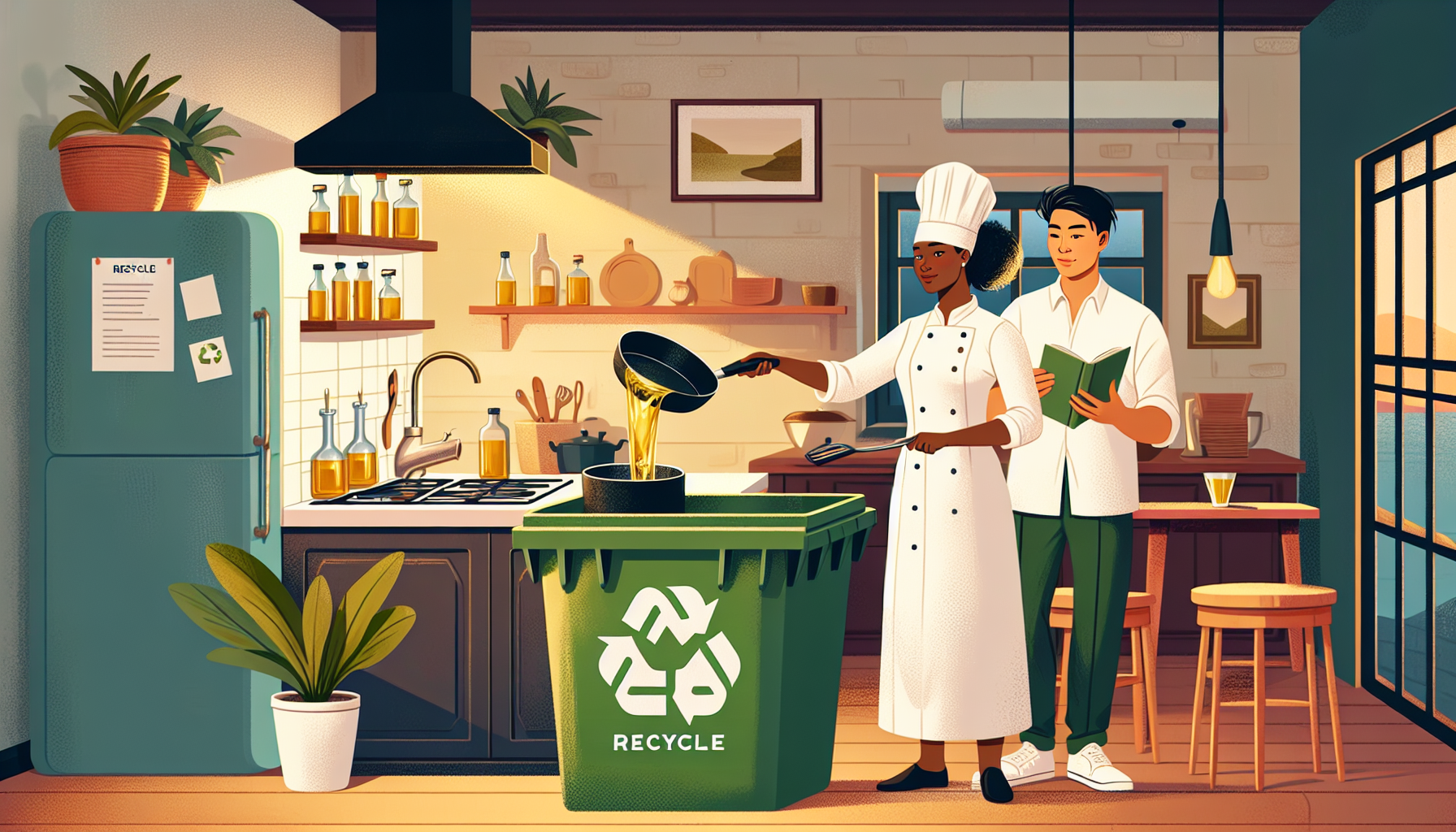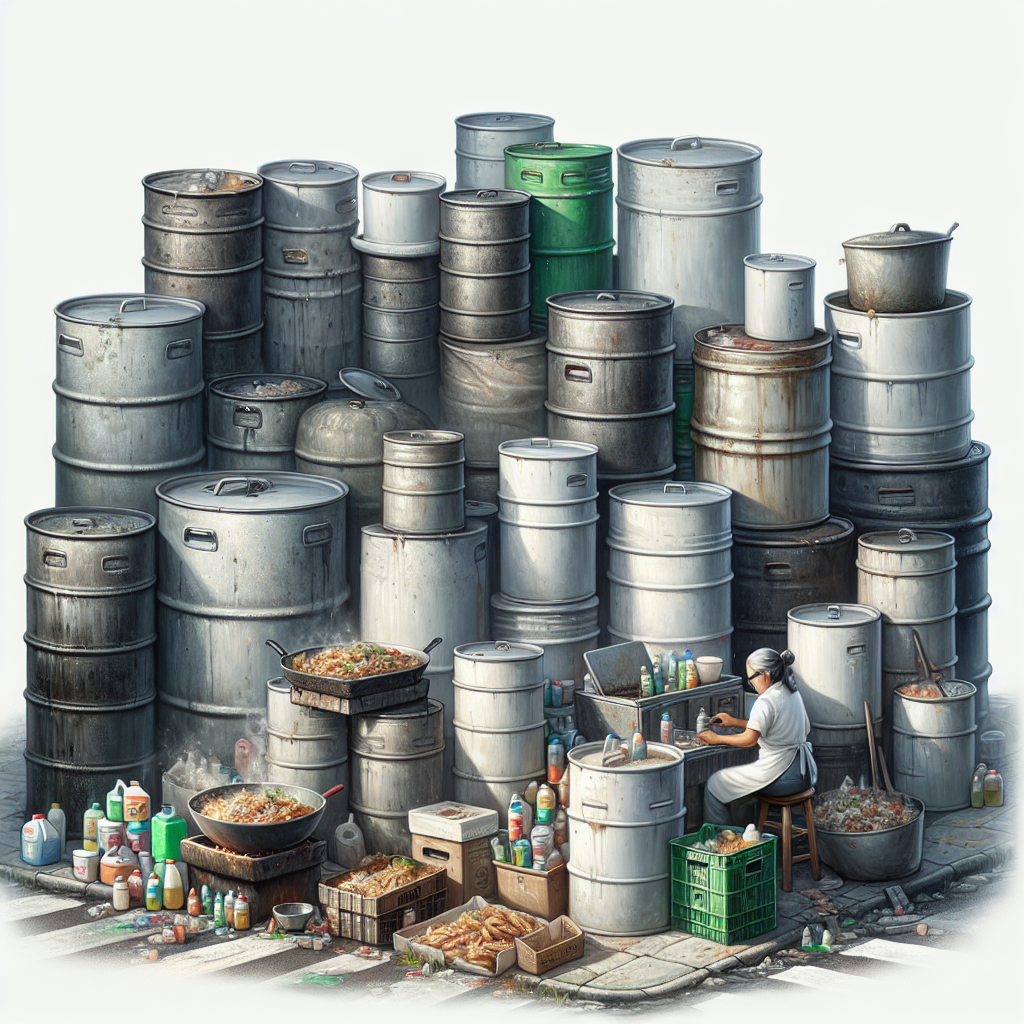Introduction
In today’s world, environmental sustainability is no longer an optional consideration—it’s a necessity. Among various sustainability practices, kitchen grease recycling stands out as a simple yet impactful way to reduce waste and conserve resources. Households and food businesses generate significant amounts of grease and oil, which, if improperly disposed of, can lead to plumbing issues, costly repairs, and environmental pollution. This article delves into the importance of kitchen grease recycling, its benefits, and practical steps on how to carry it out.
The Importance of Kitchen Grease Recycling
Understanding why kitchen grease recycling is critical lays the foundation for practical implementation. Kitchen grease, when poured down the drain, can solidify and accumulate in plumbing systems. This not only leads to blockages and expensive repairs but also disrupts public sewer systems. On a broader environmental scale, improperly disposed grease ends up in waterways, causing contamination and harming aquatic life.
Moreover, kitchen grease is a valuable resource. When recycled, it can be converted into biodiesel, a renewable energy source. This not only reduces the demand for fossil fuels but also contributes to cleaner air, as biodiesel burns more cleanly than conventional diesel. Therefore, recycling kitchen grease aligns with broader environmental conservation goals while also presenting opportunities for cost savings and resource efficiency.
Benefits of Recycling Kitchen Grease
There are numerous benefits to recycling kitchen grease, ranging from environmental conservation to financial and operational advantages. Firstly, recycling reduces waste. Instead of contributing to landfill volumes, recycled grease can be processed and repurposed, thereby extending its lifecycle and utility.
Financially, households and businesses can save on potential plumbing repairs and maintenance by avoiding grease-induced blockages. For businesses in the food industry, recycling kitchen grease can also present an additional revenue stream. Many companies specialize in collecting and repurposing used cooking oil, often compensating businesses for their waste oil. This incentive further underscores the economic viability of grease recycling.
Operationally, grease recycling can lead to more efficient waste management systems. By segregating grease from regular waste, it becomes easier to manage and dispose of other waste streams. This streamlined process enhances overall operational efficiency, contributing to a more sustainable and organized kitchen environment.
Step-by-Step Guide to Recycling Kitchen Grease
Implementing kitchen grease recycling requires careful planning and commitment. The following steps will guide you through this process, ensuring that your efforts are both effective and sustainable.
1. Collection
The first step is to collect the kitchen grease. For households, this can be as simple as setting aside a designated container for used cooking oil and grease. Make sure the container is heat-resistant and sealable to avoid spills. For commercial kitchens, larger drums or bins may be necessary to accommodate the higher volume of grease generated. It’s crucial to keep the collected grease free from contamination by other waste products to ensure its recyclability.
2. Storage
Once collected, the grease must be stored properly until it’s ready for recycling. Store the containers in a cool, dry place to prevent spoilage and odors. For larger quantities, consider using grease traps or interceptors to separate and store the grease efficiently. These devices can be installed in kitchen plumbing systems to automatically capture grease, making the collection process more seamless and less labor-intensive.
3. Partnering with a Grease Recycling Service
The next step involves partnering with a reputable grease recycling service. Many companies specialize in collecting and processing used cooking oil and grease. Research and reach out to these providers to understand their requirements and schedules. Often, they will offer scheduled pickups, making the recycling process hassle-free. Some services may also provide storage containers or grease traps as part of their partnership.
4. Compliance with Local Regulations
It’s essential to be aware of and comply with local regulations regarding grease disposal and recycling. Regulatory frameworks can differ, so ensure that your practices meet the necessary legal standards. This may involve obtaining permits, maintaining records of grease disposal, and adhering to prescribed storage and transportation guidelines. Partnering with a professional grease recycling service can help navigate these regulations efficiently.
Practical Tips for Households and Businesses
While the steps outlined above provide a general framework, specific tips can further enhance the effectiveness of your kitchen grease recycling efforts. Here are some practical tips tailored for both households and businesses.
For Households
For households, a simple tip is to use a strainer to catch food particles before they mix with the grease. This ensures that the collected grease remains pure and fit for recycling. Additionally, consider using smaller, recyclable containers for grease collection, such as glass jars or metal cans. Label these containers to avoid confusion and contamination.
For Businesses
For businesses, training staff about the importance and methods of grease recycling is paramount. Establish clear guidelines and procedures for grease collection, storage, and disposal. Regularly inspect grease traps and interceptors to ensure they are functioning correctly. Additionally, explore opportunities to monetize the collected grease by partnering with companies that offer compensation for waste oil.
Innovations in Grease Recycling
As the importance of sustainable practices continues to grow, innovations in grease recycling are emerging. Technological advancements have led to more efficient methods of converting used oil into biodiesel. Additionally, research is being conducted into alternative uses for recycled grease, such as in the production of animal feed and industrial lubricants.
Moreover, some companies are developing home-based grease recycling kits, allowing households to convert their used oil into biodiesel directly. Such innovations hold the potential to make grease recycling more accessible and commonplace, further amplifying its positive impact on the environment.
Conclusion
In conclusion, kitchen grease recycling is a valuable practice that contributes to environmental sustainability, operational efficiency, and potential financial savings. By collecting, storing, and partnering with recycling services, both households and businesses can effectively recycle kitchen grease. Furthermore, the evolving landscape of grease recycling presents even more opportunities and innovations for sustainable practices.
Adopting kitchen grease recycling is not just an individual act but a collective step towards a greener, cleaner, and more resource-efficient future. As awareness grows and technologies advance, this practice stands to play an increasingly significant role in our global sustainability efforts.




